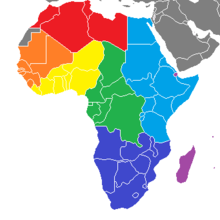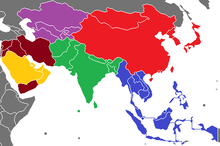
EuroBasket, also commonly referred to as the European Basketball Championship, is the main international basketball competition that is contested quadrennially, by the senior men's national teams that are governed by FIBA Europe, which is the European zone within the International Basketball Federation.

Basketball at the 2004 Summer Olympics was the sixteenth appearance of the sport of basketball as an official Olympic medal event. It took place at the Helliniko Olympic Indoor Arena, a part of the Hellinikon Olympic Complex, in Athens, for the preliminary rounds, with the later stages being held in the Olympic Indoor Hall at the Athens Olympic Sports Complex.

The FIBA Basketball World Cup is an international basketball competition between the senior men's national teams of the members of the International Basketball Federation (FIBA), the sport's global governing body. It takes place every four years and is considered the flagship event of FIBA.

The 2006 FIBA World Championship was the 15th FIBA World Championship, the international basketball world championship for men's national teams. The tournament was hosted by Japan and held from 19 August to 3 September 2006. It was co-organised by the International Basketball Federation (FIBA), Japan Basketball Association (JABBA) and the 2006 Organising Committee.

Basketball at the Summer Olympics has been a sport for men consistently since 1936. Prior to its inclusion as a medal sport, basketball was held as an unofficial demonstration event in 1904 and 1924. Women's basketball made its debut in the Summer Olympics in 1976. FIBA organizes both the men's and women's FIBA World Olympic Qualifying Tournaments and the Summer Olympics basketball tournaments, which are sanctioned by the IOC.
The FIFA World Cup qualification is a set of competitive matches that a national association football team plays in order to qualify for one of the available berths at the final tournament of the men's FIFA World Cup.

National team appearances in the FIBA Basketball World Cup are the number of appearances that individual country's basketball national teams have made at the FIBA Basketball World Cup. A total of 65 countries have made at least one appearance in the FIBA international senior men's basketball competition.

The International Basketball Federation is an association of national organizations which governs the sport of basketball worldwide. FIBA defines the rules of basketball, specifies the equipment and facilities required, organizes international competitions, regulates the transfer of athletes across countries, and controls the appointment of international referees. A total of 212 national federations are members, organized since 1989 into five zones: Africa, Americas, Asia, Europe, and Oceania.
The history of the FIBA Basketball World Cup began in 1950, with the first FIBA Basketball World Cup, which was the 1950 FIBA World Championship. The FIBA Basketball World Cup is an international basketball competition contested by the men's national teams of the members of the International Basketball Federation (FIBA), the sport's global governing body. The championship has been held every four years since the inaugural tournament in 1950.

The men's qualification for the 2004 Olympic men's basketball tournament occurred from 2002–2003; all five FIBA zones sent in teams.

The 2019 FIBA Basketball World Cup was the 18th tournament of the FIBA Basketball World Cup for men's national basketball teams, held from 31 August to 15 September 2019. The tournament was hosted in China and was rescheduled from 2018 to 2019, becoming the first since 1967 that did not occur in the same year as the FIFA World Cup. The tournament expanded from 24 to 32 teams.

The Yugoslavia women's national basketball team was the women's basketball side that represented the Kingdom of Yugoslavia and Socialist Federal Republic of Yugoslavia from 1943 until 1992 in international competition, and were controlled by the Basketball Federation of Yugoslavia (KSJ).
The basketball qualification for the Summer Olympics men's basketball tournament occurred from 2014 to 2016; all five FIBA zones sent in teams.
The Basketball Federation of Serbia and Montenegro, previously Basketball Federation of Yugoslavia, was a non-profit organization and the national sports governing body for basketball in Serbia and Montenegro. Federal Republic of Yugoslavia renamed to Serbia and Montenegro in 2003. Until 2006, the organization has represented Serbia and Montenegro in FIBA and the men's and women's national basketball teams in the Olympic Committee of Serbia and Montenegro.
Italy defeated Australia 2-0 in the final tennis match of the 2023 Davis Cup. It was the 111th edition of the Davis Cup, an international team competition between national teams in men's tennis, and was part of the 2023 ATP Tour calendar.















